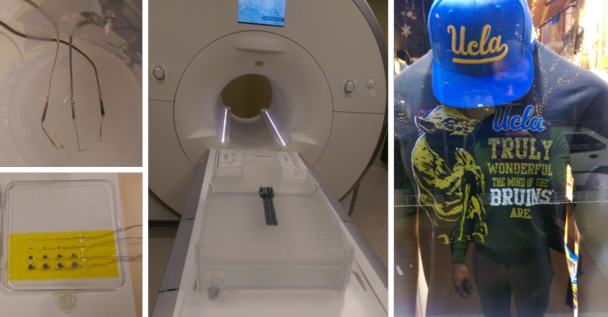
It all started with a fruitful discussion on safety of active implants in magnetic resonance imaging (MRI) at a poster session of the international conference on magnetic resonance in medicine (ISMRM) 2017 where I presented my recent results of the BrainLinks-BrainTools project Neural Probe Behavior in Magnetic Resonance (NEUMARE).
The mutual interest quickly spread among the newly met research group and turned into an invitation by Prof. Daniel B. Ennis of the department of radiological sciences at the University of California in Los Angeles (UCLA). The available measurement setup for the evaluation of heating of implants in MRI in conjunction with abundant scan time and the corresponding expertise were good incentives. On the counterpart, Prof. Ennis' labs curiosity towards new implantable technology would be quenched.
The 11-week long stay was supported by the BrainLinks-BrainTools program to fund research experience abroad of early career scientists. I am very grateful to have had this chance as already just being surrounded by the subject of MRI for the entire time helped my understanding of it to make a big leap ahead. But the opportunity to perform heating measurements of our implants in MRI by myself engulfed me to the night before my returning flight! The first results of this new collaboration will be presented-one year after the initial discussion-at the international conference on magnetic resonance in medicine ISMRM 2018 in Paris.
A great success and a promising new collaboration which was enabled by BrainLinks-BrainTools.
Johannes Erhardt
Early career researcher within the cluster of excellence BrainLinks-BrainTools
Johannes Erhardt is member of Prof. Thomas Stieglitz's group, Biomedical Microtechnology